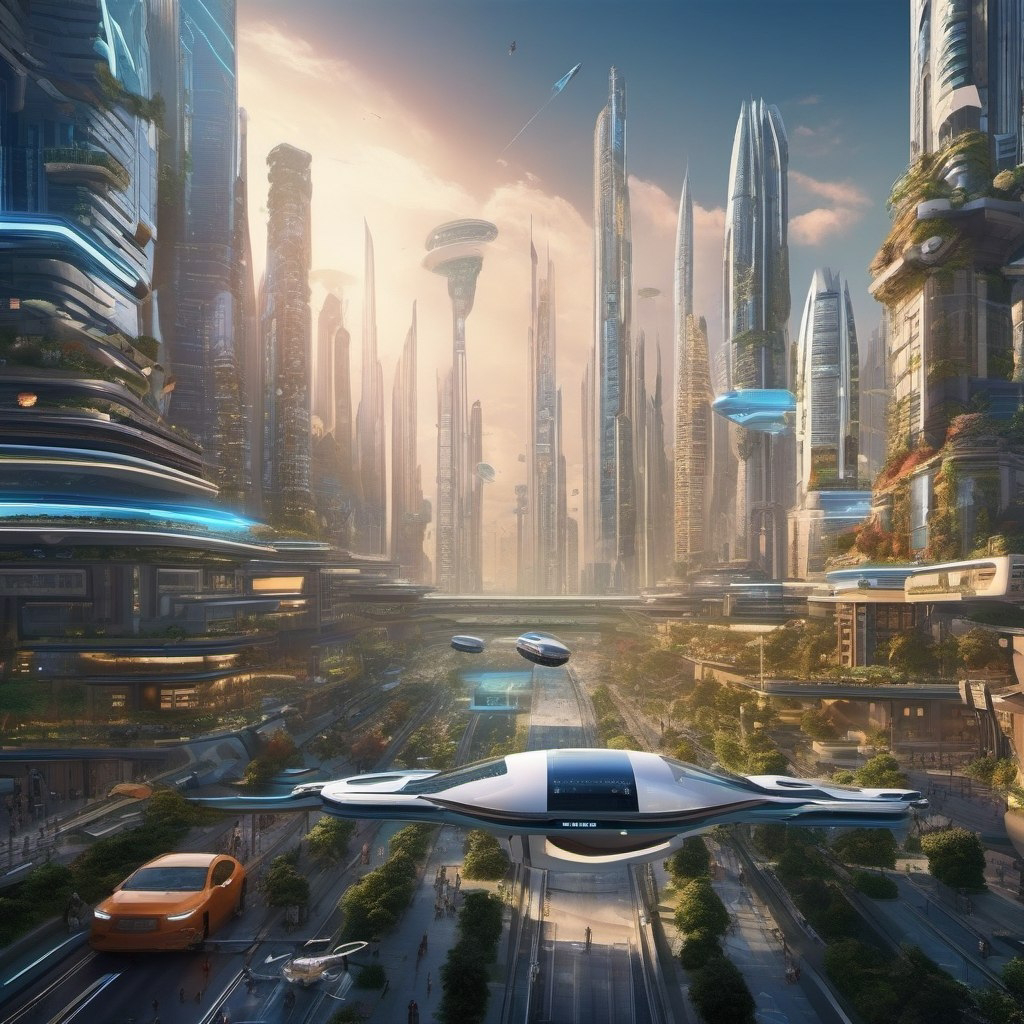Artificial Intelligence in Everyday Life: How AI Is Changing Our Lives and What to Expect in the Future
In the digital age, artificial intelligence (AI) has emerged as a revolutionary force, weaving its way into the fabric of our daily lives with a subtlety that belies its transformative power. From the way we shop, communicate, and entertain ourselves to the methods by which we diagnose diseases and predict weather patterns, AI's omnipresence is undeniable. It is an engine of change, driving advancements that once existed only within the realms of science fiction. This article delves into the profound impact of AI on our everyday experiences and casts a forward glance at what we might expect as this technology evolves.
### The Dawn of AI in Daily Life
The story of AI's integration into everyday life began with simple yet significant steps. Spam filters, search engines, and recommendation systems on e-commerce and streaming platforms were among the first to harness AI, subtly personalizing our digital interactions. These applications use machine learning algorithms—a subset of AI that learns from data to make decisions or predictions—to enhance user experience. This was just the beginning; AI's role in our daily routines has since expanded exponentially.
### AI at Home
Smart home technology is a primary example of AI’s integration into domestic life. Voice-activated assistants like Amazon's Alexa, Google Assistant, and Apple's Siri respond to our commands, automating tasks such as controlling lighting, playing music, and providing real-time information. These AI systems learn from our preferences to better serve us, becoming more efficient with each interaction.
Robotic vacuum cleaners navigate our floors, avoiding obstacles and learning the most efficient cleaning paths. Meanwhile, smart thermostats like the Nest Learning Thermostat adjust heating and cooling based on our habits, reducing energy consumption without sacrificing comfort.
### AI at Work
In the workplace, AI streamlines operations across a plethora of industries. It enables predictive maintenance in manufacturing, reducing downtime by anticipating equipment failures before they happen. In finance, AI-powered algorithms detect fraudulent transactions with greater speed and accuracy than ever before. The legal field uses AI to sift through documents to aid in discovery processes, and in healthcare, AI assists in diagnosing diseases, sometimes identifying conditions from medical imagery with greater accuracy than human doctors.
### AI in Society
AI’s societal implications are profound. Social media platforms use AI to moderate content, filter out hate speech, and personalize feeds. In urban planning, AI contributes to the development of smart cities, optimizing traffic flow, public transport, and energy distribution. In agriculture, AI-driven precision farming techniques help farmers monitor crop health, forecast yields, and manage resources more efficiently.
### The Personalization of AI
One of the most relatable changes that AI has brought into our lives is the personalization of services. Streaming services like Netflix and Spotify utilize AI to analyze our viewing and listening habits, respectively, recommending content we are likely to enjoy. Online shopping experiences are tailored to individual tastes and shopping histories, thanks to AI algorithms that predict what products we might be interested in purchasing.
### AI and Healthcare
AI's impact on healthcare deserves special attention. Wearable devices monitor our health metrics in real-time, providing data that can predict health issues before they become severe. AI-driven telemedicine makes healthcare more accessible, particularly in remote areas. In drug discovery, AI accelerates the identification of potential treatments, reducing the time and cost associated with bringing new medicines to market.
### Ethical Considerations and AI
As AI becomes more integrated into our lives, ethical considerations become increasingly important. Issues such as privacy, bias in AI algorithms, and the potential for job displacement due to automation are hot topics for discussion. The development of AI is thus not only a technological endeavor but also a societal one, requiring careful stewardship to ensure that the benefits are distributed equitably and that human values are upheld.
### The Future of AI
Looking ahead, the potential of AI is boundless. We can anticipate further personalization, with AI becoming even more adept at anticipating our needs and preferences. In the coming years, we might see the proliferation of autonomous vehicles, further revolutionizing transportation and logistics. AI is also likely to play a critical role in addressing climate change by optimizing energy use and contributing to the design of sustainable technologies.
Moreover, advancements in AI are expected to continue propelling the fields of quantum computing and the development of general AI—a form of AI that can understand, learn, and apply knowledge in a way that is indistinguishable from human intelligence. With every leap forward, AI is poised to redefine what is possible.
### Conclusion
Artificial intelligence is not a distant marvel of the future; it is a defining feature of the present, influencing how we live, work, and interact with the world around us. Its evolution promises even more profound changes, opening up new possibilities and challenges that we must navigate with wisdom. As we stand on the brink of AI's next great leap forward, it is incumbent upon us to guide its trajectory with an eye toward the betterment of humanity. The AI of the future will be shaped by the choices we make today, ensuring that it remains a force for good, augmenting our abilities, and enriching our lives in ways we can only begin to imagine.




Комментарии
Отправить комментарий